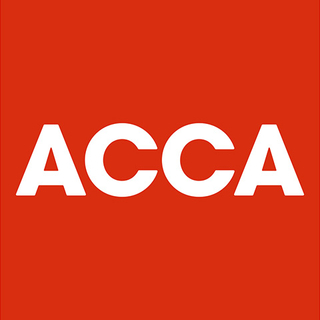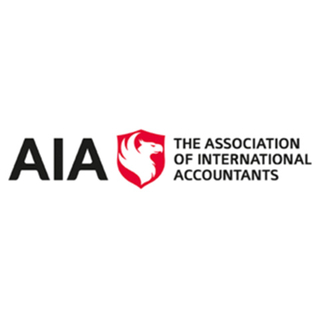MSc Accountancy
Skip to section
Key information
- Location
- Edinburgh
- Mode of delivery
- On-campus
- Delivery type
- Full-time, Part-time
- Start date
- September
- Duration
- 1 year
- Qualification
- MSc
Contact
Contact our enquiries team
Contact usOverview
This masters degree in accounting will equip you with the skills and knowledge required to succeed in any career or aspect of business that requires expertise in accounting – in private, public or third sector organisations. It aims to provide you with a route to gain professional qualifications in all of the key accounting associations, and has been designed with a focus on the Association of Chartered Certified Accountants. The MSc includes six mandatory courses and two elective courses.
There are eight taught courses (divided equally over two semesters) and an accounting, banking or finance dissertation in the final semester. If you chose to study part-time, you register for two courses per semester and progress to the dissertation at the end of the second year.
There are three mandatory courses in semester 1: Financial Management, Financial Accounting and Reporting, Auditing Assurance and Professional Ethics. These courses help begin to develop a deeper understanding of specialist areas within accountancy.
You will customise your degree to match your specific interests or career pathway by selecting two course options, one in each semester. Courses available reflect Financial Analysis , Ethics and Corporate Governance, Financial Information Systems, and Comparative Financial Reporting
In Semester 2 you will take a further three mandatory courses: International Managerial Accounting, Taxation, and Research Methods.
In Semester 3, the accounting, banking or finance dissertation is the capstone course where we invite you to 'deep-dive' into your chosen area of accounting. You will be required to demonstrate your mastery of the subject area by developing new insight from analysis of valuable primary research.
Our partnership with Bloomberg
Heriot-Watt University is a named Bloomberg Experiential Learning Partner (ELP), a programme designed by Bloomberg to recognise universities that are leaders in experiential learning.
Our partnership with Bloomberg, and the achievement of ELP status, is a mark of our innovative approach to connecting our teaching experience with real-life practical applications. Being a Bloomberg experiential learning partner allows Heriot-Watt and Edinburgh Business School to better integrate industry-leading data, research, news and analytics into our curricula.
The Bloomberg facility at Heriot Watt University is unique in Scotland and enables students from different disciplines of business to better understand different aspects of markets, business behaviours and economic trends. It enables:
- Performance comparison between different companies or industries using: financial reports, company valuations, company news, company portfolios, key changes/trends.
- Supply chain analysis through company's supply chain relationships that includes suppliers, customers and competitors. This enables managers to refine their supply chain configuration and strategy.
- Market share analysis by providing key industry data, interactive charting and commentary by Bloomberg industry experts. It also provides industry fundamental statistics, market share and other key industry specific metrics (i.e. retailers, airlines, global auto manufacturing, etc.)
- Strategic portfolio analysis through creating portfolios against markets and market positions, allocation of asset and performance attribution analysis.
- Accounting and Financial analysis by providing financial history of companies and indices including current and historical income statements, balance sheets, cash flow statements, ratio analysis and more.
Course content
Year 1
Semester 1
- Financial Management
- Financial Accounting and Reporting
- Auditing, Assurance and Professional Ethics
Choose one of the following options
- Financial Analysis
- Ethics and Corporate Governance
Semester 2
- International Managerial Accounting
- Taxation
- Research Methods
Choose one of the following options
- Financial Information Systems
- Comparative Financial Reporting
Semester 3 (May-Aug)
- Accounting Banking and Finance Dissertation
Specialist mandatory courses
Semester 1
Financial Management
Financial Management will provide you with an understanding of different strategies companies follow to maximise shareholder wealth. The course aims to provide an understanding of how finance theories are applied to a variety of practical situations and will enable you to gain practical experience of research and analysis in a financial strategy context.
Financial Accounting and Reporting
Financial Accounting and Reporting will enable you to prepare a set of financial statements in accordance with the relevant accounting standards and will also provide an understanding of issues, principles and theories underlying current developments in financial accounting and reporting.
Auditing Assurance and Professional Ethics
Auditing and Assurance will introduce you to the theory and practice of Auditing. You will examine the role and objectives of an audit. The context in which audits are carried out and the practical skills required for auditors.
Semester 2
Taxation
Taxation will help you develop a strong understanding of the theoretical framework of taxation. We will teach you the practical skills and knowledge of UK personal income and capital gain tax rules and calculations alongside UK Corporation tax rules and calculations.
International Managerial Accounting
International managerial accounting will enable you to assess and apply a range of accounting techniques that are used for performance evaluation and for decision-making and control in the management of companies and their organisations nationally and internationally.
Research Methods
The Research methods course will prepare you for your dissertation and for future research in the academic or non-academic sectors. You will be exposed to both dominant modes of research in accountancy and finance which are qualitative and quantitative and you will also be given practical help on the steps required for the successful completion of the MSc level dissertation.
Optional courses
Semester 1
Ethics and Governance
Ethics and governance aims to create awareness of ethical responsibilities in professional accountants to enable them to resolve ethical issues. It also aims to explore the role of accountants in achieving effective governance and to help them understand their role in measuring economic social and environmental performance of organisations and their implications on different stakeholders.
Financial Analysis
Financial analysis will provide a systematic understanding of how to analyse the financial performance of an organisation through the use of published financial information. It will provide you with a conceptual understanding of accounting process and insights into the critical areas of advanced professional practise.
Semester 2
Financial Information Systems
Financial Information Systems will enable you to develop an understanding of the concepts as well as the practical skills required by accounting and finance professionals not only as users but also as designers, evaluators and managers of computer based financial information systems.
Comparative financial reporting
Comparative Financial Reporting provides you with an international perspective to the study of accounting so that you can develop an understanding of the reasons for national differences the tendencies towards harmonisation and the problems of multinational companies. This course will also help you to develop skills of analysing and evaluating financial reports prepared in other countries not just within the UK.
Dissertation project
During the final semester and upon successful completion of your prior courses you will write a dissertation which will help you develop a range of research skills and demonstrate specialist accounting knowledge.
Go Global
Some of our Postgraduate Taught Masters Programmes are eligible for Inter-Campus Transfer. Please contact studywithus@hw.ac.uk for further information.
Fees and funding
Tuition fees
| Status [footnote 1] | Full-time | Part-time |
|---|---|---|
| UK | 9152 | 4576 |
| Overseas [footnote 2] | 20376 | 10188 |
Scholarships and bursaries
We aim to encourage well-qualified, ambitious students to study with us and we offer a wide variety of scholarships and bursaries to achieve this. Over £6 million worth of opportunities are available in fee and stipend scholarships, and more than 400 students benefit from this support.
View our full range of postgraduate scholarships.
Entry requirements
Entry
A good Honours degree (first or second class), or its non-UK equivalent, in a relevant subject from a recognised British or overseas university.
Work or project experience in the area of finance will be of further advantage.
English language requirements
If your first language is not English, or your first degree was not taught in English, we'll need to see evidence of your English language ability.
The minimum English language requirement for entry to this programme is IELTS 6.5 (or equivalent) with no component lower than 6.0.
If you do not have IELTS 6.5, we offer a range of English language courses to help you meet the English language requirement for this programme prior to commencing your studies:
- 20 weeks English (for IELTS of 5.0 with no skill lower than 4.5)
- 14 weeks English (for IELTS of 5.0 with minimum of 5.0 in writing and no skill lower than 4.5)
- 10 weeks English (for IELTS of 5.5 with no skill lower than 5.0)
- 6 weeks English (for IELTS 5.5 with no skill lower than 5.5)
Why Heriot-Watt?
Clubs and activities
At Heriot-Watt we have an extensive programme of over 90 sports clubs and societies to get involved in. You can try as many as you like or start one of your own!
Edinburgh campus accommodation
Living on our beautiful Edinburgh campus is a great way to meet others from all over the world. Our student accommodation is within easy reach of the teaching buildings, sports facilities, catering venues and the Student Union
Edinburgh Campus facilities
At Heriot-Watt University, we offer a wide range of services to help you deal with all aspects of your life with us, whether these be academic, personal, technical, financial or just plain fun!
Health and wellbeing
Student Wellbeing Services aim to provide a range of support, guidance, activities and advice to help students to be their best, and get the most from their university experience. From counselling to coaching we'll sure you are fully supported.
Heriot-Watt Student Union
There's more to university life than simply getting your degree, and Heriot-Watt University Student Union is all about helping you to have the best possible experience while you study here.
Living in Edinburgh
Historic and beautiful, a cultural capital that fuels the senses whether you love the arts or nature, nightlife or study life, Edinburgh is stimulating and inspirational and never, ever boring.
Sport facilities
Oriam, Scotland Sports Performance Centre offers state-of-the-art sports facilities, for all levels of sport and ability
Your career
Employers around the world actively seek out our graduates because they are work-ready. All our degrees are career-focused and relevant to the needs of industry. Around 95% of our students are in employment or further study within six months of graduating.
We are accredited by the following organisations
At Heriot-Watt University we develop degrees that are relevant for the world of work. We work with Professional bodies and Institutes to gain appropriate Accreditations and Professional Memberships for your industry. Find out below how this degree aligns to industry.

Association of Chartered Certified Accountants (ACCA)
Accredited for the purpose of exemptions from some professional examinations.

Association of International Accountants (AIA)
Accredited for the purpose of exemption from some professional examinations.

Chartered Institute of Management Accountants (CIMA)
Accredited for the purpose of exemption from some professional examinations through the Accredited degree accelerated route.







